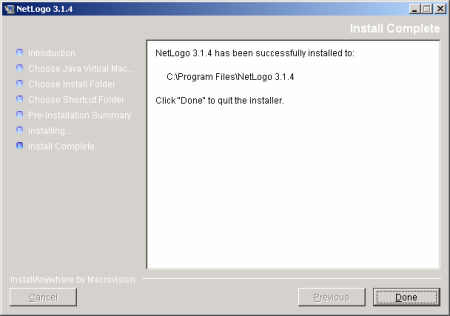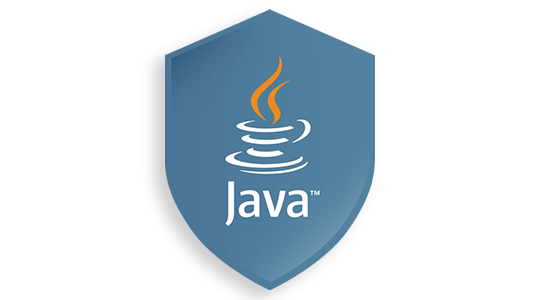- Free Java Jdk Download For Mac
- Minecraft Jdk Download For Mac 2020
- Jdk Download For Mac
- Java Jdk Download For Mac Os X
This topic includes the following sections:
Quick guide to download and install OpenJDK 11 on Mac. OpenJDK Community Version. What is OpenJDK. OpenJDK is the short form of Open Java Development Kit similar to Oracle's Java Development Kit used to develop Java Applications. These downloads can be used for development, personal use, or to run Oracle licensed products. Use for other purposes, including production or commercial use, requires a Java SE subscription or another Oracle license. JDK 11 software is licensed under the Oracle Technology Network License Agreement for Oracle Java SE. JDK 11.0.12 checksum. Download Jdk For Mac Os X 10.6 8 Ash Player For Mac Os X 10 6 8 Download Download Jdk For Mac Os X 10.6 80 6 8 Download Free. Do not attempt to uninstall Java by removing the Java tools from /usr/bin. This directory is part of the system software and any changes will be reset by Apple the next time you perform an update of the OS. Installing the JDK on macOS. When you install the JDK, the associated JRE is installed at the same time. The JavaFX SDK and Runtime are also installed and integrated into the standard JDK directory structure. To install the JDK on macOS: Download the JDK.dmg file, jdk-10.interim.update.patch-macosx-x64.dmg.
System Requirements for Installing the JDK on macOS
The following are the system requirements for installing the JDK on macOS:
Installing manually. Download the latest Gradle distribution. The current Gradle release is version 7.2, released on 17 Aug 2021. The distribution zip file comes in two flavors: Binary-only. Complete, with docs and sources. If in doubt, choose the binary-only version and browse docs and sources online.
Any Intel-based computer running macOS.
Administrator privileges.
You cannot install Java for a single user. Installing the JDK on macOS is performed on a systemwide basis for all users. Administrator privileges are required to install the JDK on macOS.
Determining the Default JDK Version on macOS
When starting a Java application through the command line, the system uses the default JDK.

You can determine which version of the JDK is the default by entering java -version in a Terminal window. If the installed version is 15 Interim 0, Update 0, and Patch 0, then you see a string that includes the text 15. For example:
To run a different version of Java, either specify the full path, or use the java_home tool. For example:
Free Java Jdk Download For Mac
$ /usr/libexec/java_home -v 15 --exec javac -version
Installing the JDK on macOS
- Download the JDK
.dmgfile,jdk-15.interim.update.patch_osx-x64_bin.dmgfrom Java SE Downloads page.Click Accept License Agreement.
- From either the browser Downloads window or from the file browser, double-click the
.dmgfile to start it.A Finder window appears that contains an icon of an open box and the name of the.pkgfile. - Double-click the
JDK 15.pkgicon to start the installation application.The installation application displays the Introduction window. - Click Continue.
- Click Install. A window appears that displays the message: Installer is trying to install new software. Enter your password to allow this.
- Enter the Administrator user name and password and click Install Software.The software is installed and a confirmation window is displayed.
.dmg file if you want to save disk space. Uninstalling the JDK on macOS
You must have Administrator privileges.Note:
Do not attempt to uninstall Java by removing the Java tools from /usr/bin. This directory is part of the system software and any changes will be reset by Apple the next time that you perform an update of the OS.
- Go to
/Library/Java/JavaVirtualMachines. - Remove the directory whose name matches the following format by executing the
rmcommand as a root user or by using thesudotool:/Library/Java/JavaVirtualMachines/jdk-15.interim.update.patch.jdkFor example, to uninstall 15 Interim 0 Update 0 Patch 0:
$ rm -rf jdk-15.jdk
Installation FAQ on macOS Platform
This topic provides answers for the following frequently asked questions about installing JDK on macOS computers.
1. How do I find out which version of Java is the system default?
When you run a Java application from the command line, it uses the default JDK. If you do not develop Java applications, then you do not need to worry about this. See Determining the Default JDK Version on macOS.
2. How do I uninstall Java?
See Uninstalling the JDK on macOS.
3. After installing Java for macOS 2012-006, can I continue to use Apple's Java 6 alongside the macOS JDK for Java 15?
If you want to continue to develop with Java 6 using command-line, then you can modify the startup script for your favorite command environment. For bash, use this:
$ export JAVA_HOME=`/usr/libexec/java_home -v 14`
Some applications use /usr/bin/java to call Java. After installing Java for macOS 2012-006, /usr/bin/java will find the newest JDK installed, and will use that for all of the Java-related command-line tools in /usr/bin. You may need to modify those applications to find Java 6, or contact the developer for a newer version of the application.
4. What happened to the Java Preferences app in Application Utilities?
Minecraft Jdk Download For Mac 2020

Jdk Download For Mac

The Java Preferences app was part of the Apple Java installation and is not used by Oracle Java. Therefore, macOS releases from Apple that do not include Apple Java will not include Java Preferences.
Java Jdk Download For Mac Os X
jGRASP is a lightweight development environment created specifically to provide automatic generation of software visualizations to improve the comprehensibility of software. jGRASP is implemented in Java, and runs on all platforms with a Java Virtual Machine (Java version 1.5 or higher).
jGRASP produces Control Structure Diagrams (CSDs) for Java, C, C++, Objective-C, Python, Ada, and VHDL; Complexity Profile Graphs (CPGs) for Java and Ada; UML class diagrams for Java; and has dynamic object viewers and a viewer canvas that work in conjunction with an integrated debugger and workbench for Java. The viewers include a data structure identifier mechanism which recognizes objects that represent traditional data structures such as stacks, queues, linked lists, binary trees, and hash tables, and then displays them in an intuitive textbook-like presentation view.
jGRASP is developed by the Department of Computer Science and Software Engineering in the Samuel Ginn College of Engineering at Auburn University.



